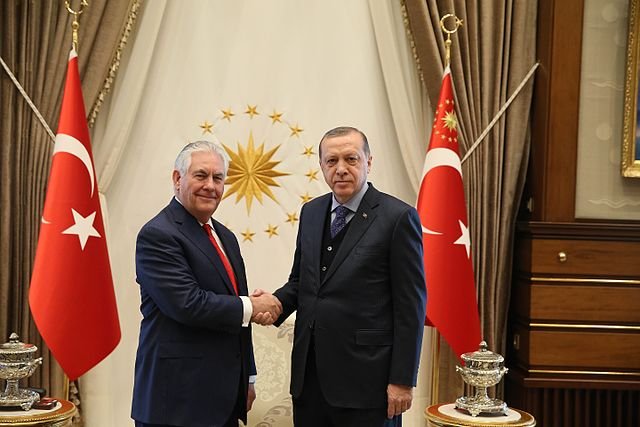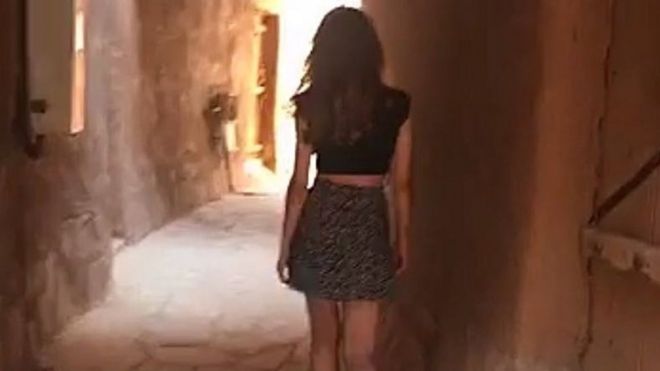A Step Backward: The Closure of the Office of Global Criminal Justice
With the raspy barking of a US President in the background trying to “Make America Great Again,” the world shrinks away in surprise and confusion. As the light begins to wane on that bright and shining experiment on the hill called “America”, the international community faces the yawning maw of a retrenching America, once again looking inward, shrinking away from a leadership position it has held since World War II. Unprepared for any of this, the West is losing its way uncertain and weakened. They look for any indication of someone to lead.
It will not be America. From the environment to trade, the US has chosen to step away from not only legal but also moral obligations. This past week another indication of further retrenchment was manifest when US Secretary of State Rex Tillerson announced that he was closing the Office of Global Criminal Justice (OGCJ), the office where the US asserts leadership and support for international justice and holding accountable those who feed upon their own citizens. Like much else this new US administration has done, this is wrong!
The United States has been the cornerstone for the creation of modern international criminal law. It played the leading role at the International Criminal Tribunal at Nuremberg in 1945, the subsequent Council 10 trials, up to and including the establishment of the tribunals and courts for Yugoslavia, Rwanda, Sierra Leone, and Cambodia, as well as the International Criminal Court. BUT FOR the support of the United States, most of these justice mechanisms would not have come into existence or would have had existential and overwhelming challenges at the beginning. The United States has always been at the forefront in creating justice mechanisms.
Past administrations have had policy differences with the world community on the administration of international justice, but, at the end of the day, they did not waiver in the perception that the rule of law is important for a more stable world. This administration, a newly forming kleptocracy, is facing the rule of law with almost a blatant disregard, certainly a jaw-dropping disrespect not seen in the history of the republic. Ruefully, commentators have said that in Washington “nothing matters.”
The reasons for the closure of the OGCJ appears to be couched in the devastating cuts that must come from a 30% reduction in the State Department’s budget this fiscal year causing necessary cuts throughout the department. Efficiencies need to be made, but closure of the OGCJ will actually bring greater cost in the end. A small office with no operating budget other than the few personnel costs and the like, really does not cost the department much at all. Yet their global footprint is much larger than the numbers assigned to the OGCJ, almost equal to the more expensive bureaus.
The office travels the world, sits at all of the key meetings, conferences and other efforts putting the moral force of the world’s leading liberal democracy forcefully on the table of justice to ensure that reasonable outcomes and solutions are had as the world deals with unprecedented challenges related to atrocity, unrest and instability around the world.
Closing the OGCJ removes the United States from efforts to take on these challenges resulting in further insecurities that will challenge the national security of the United States. The small cost savings in closing this influential office will cost much more as the State Department, as well as other national security agencies, like the Department of Defense are drawn into future unrest because we no longer have the ability to prevent the destabilizing effects of atrocity, civil war and conflict. The OGCJ helped through dialog to settle disputes, unrest and the like before they developed into threats to our national security. If there were atrocities to prevent, the OGCJ contributed in the establishment of mechanisms to hold accountable those who commit those atrocities. In closing we would use the analogy that the United States built the house that we now call international criminal justice. With the closure of the OGCJ, the United States is walking out the front door and throwing the keys to the dictators, thugs and warlords who kill their own citizens.
The authors are the founding Chief Prosecutors of the international tribunals for Yugoslavia, Rwanda, and Sierra Leone.
Suggested citation: David M. Crane and Richard Goldstone, A Step Backward: The Closure of the Office of Global Criminal Justice, JURIST – Academic Commentary, July 21, 2017, http://jurist.org/forum/2017/07/Crane-Goldstone-a-step-backward.php.
This article was prepared for publication by Dave Rodkey, Managing Editor for JURIST. Please direct any questions or comments to him at commentary@jurist.org<hrheight=’1′>.












